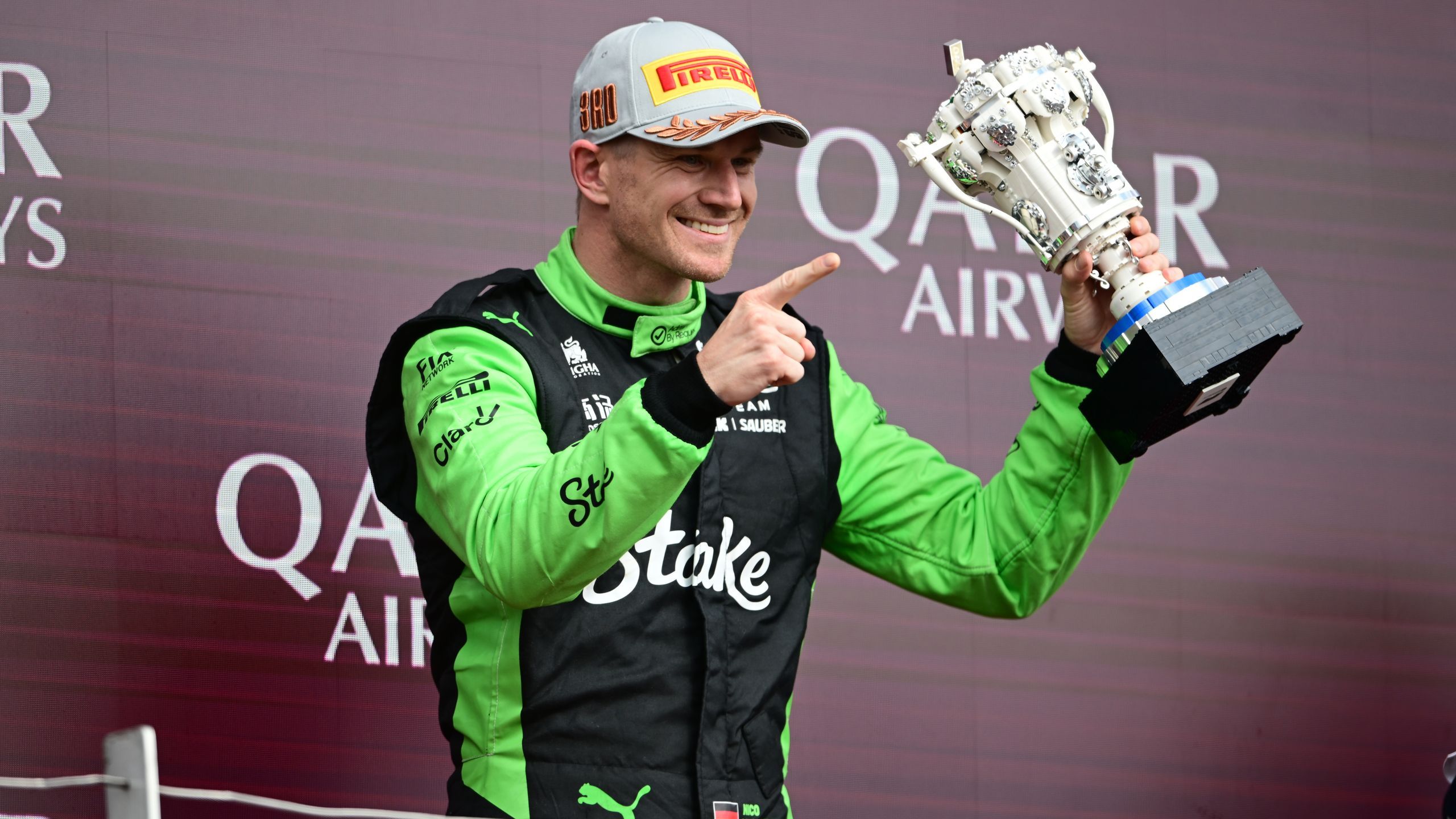
SILVERSTONE, UK – In a sport often dictated by clinical precision and predictable outcomes, Formula 1 delivered a genuine, heartwarming surprise at the British Grand Prix. Nico Hülkenberg, a driver whose career had become synonymous with an unenviable statistical quirk, finally stepped onto the podium, ending a pursuit that spanned 15 years and 238 previous race starts.
For years, Hülkenberg held the record for the most Formula 1 starts without a single top-three finish. It was a bizarre anomaly for a driver widely respected within the paddock for his raw talent, junior category dominance (including a GP2 title and a pole position in his rookie F1 season), and even a victory at the prestigious 24 Hours of Le Mans.
His struggle to convert potential into a podium became a running narrative, a source of fascination and, at times, frustration. Opportunities arose – notably at Brazil in 2012 and his home race in Germany in 2019 – but circumstances, strategy mishaps, or uncharacteristic errors always conspired against him. It was a record that simply didn`t seem to fit a driver of his calibre.
The breakthrough arrived with Sauber, a team undergoing significant transformation ahead of its transition to Audi in 2026. Sauber itself hadn`t tasted podium success since 2012 and finished the previous season rooted to the bottom of the standings without scoring a point. The idea of a podium for the Swiss outfit, let alone with Hülkenberg at the wheel, seemed improbable just races ago. Yet, demonstrating impressive recent form, the team and driver executed a flawless strategy in tricky Silverstone conditions.
The reaction from within the sport was telling. Sauber team boss Jonathan Wheatley, relatively new to working with Hülkenberg but long an admirer, expressed disbelief that this moment had taken so long. He spoke of the driver`s class and faultless performance. Reigning world champion Max Verstappen, a friend of Hülkenberg`s, celebrated with visible enthusiasm as they crossed the line. Former teammates and competitors like Carlos Sainz and Fernando Alonso echoed the sentiment, highlighting Hülkenberg`s enduring talent despite often lacking top-tier machinery.
“I never doubted him,” Sainz remarked, adding that this podium should silence any critics who pointed to the unwanted record.
Alonso, acutely aware of the impact of car performance on a driver`s resume, noted Hülkenberg as “one of the best drivers on the grid that never had the opportunity to have a proper car underneath him.”
The record itself had become a curious footnote in his career. Even days before the British Grand Prix, when asked about the `most starts without a podium` statistic, Hülkenberg, with a relaxed perspective honed during his recent time away and return to the sport, simply brushed it off as “like a cold cup of coffee.”
Now, that particular brew has been firmly discarded. Adrian Sutil, with 128 starts, inherits the dubious distinction, a number less than half of Hülkenberg`s tally, underscoring the sheer scale of the German`s wait.
For Hülkenberg, the podium is more than just breaking a record; it`s validation. It`s a tangible reward for years of hard work, persistence, and navigating the often brutal realities of Formula 1, where talent doesn`t always guarantee opportunity or success. For Sauber, it signals a potential turning point, demonstrating that their recent uptick in performance is real.
The champagne flowed at Silverstone, borrowed from more frequent visitors to the podium, a small, poignant detail highlighting the unexpected nature of the celebration. But there was no doubting the man of the hour. Nico Hülkenberg finally had his moment, proving that sometimes, the longest waits yield the sweetest victories.









